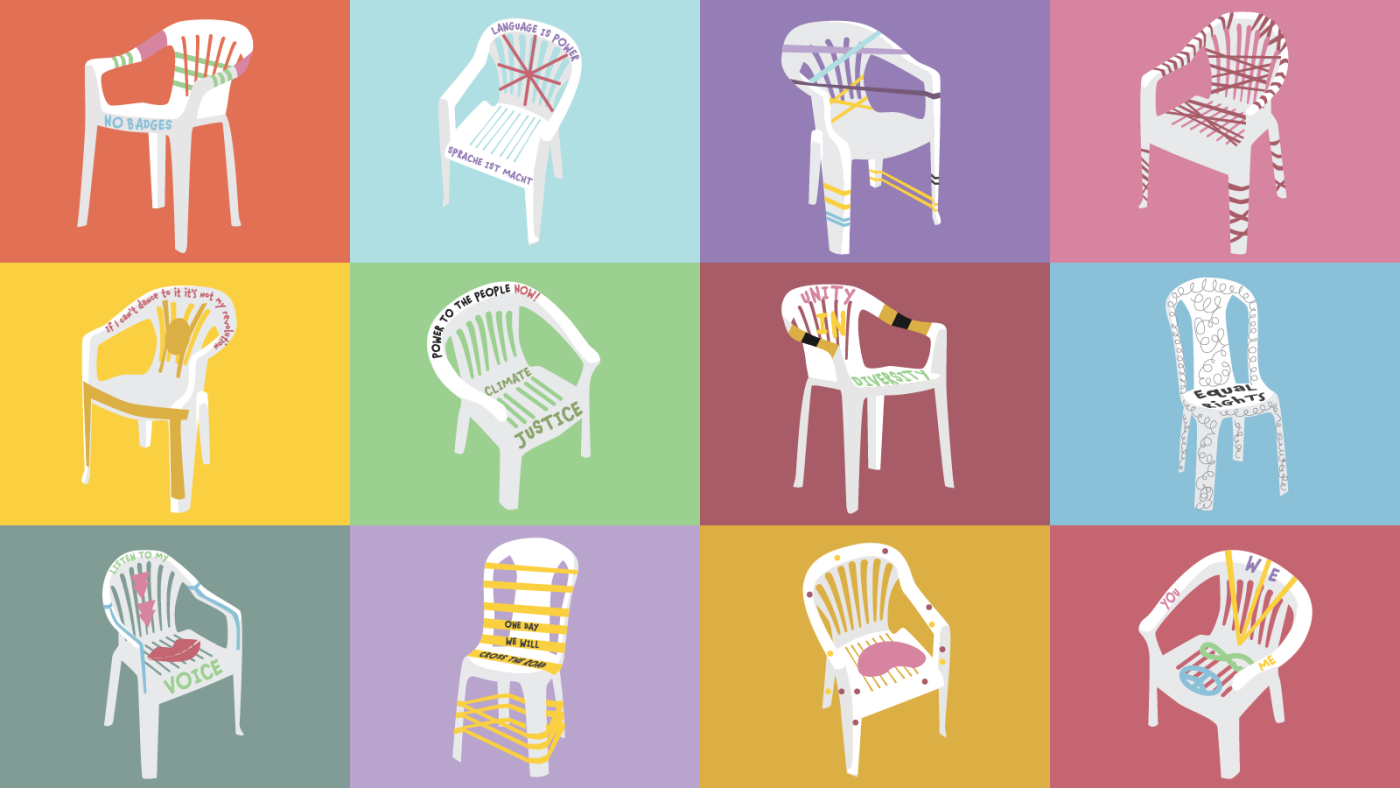#EmptyChairs Campaign: Mobilizing for a People’s Council

The last two years have been a lesson in the importance of global solidarity. The pandemic has revealed just how interconnected we are, and has demonstrated the necessity of global solidarity, cooperation, and collaboration in tackling human rights issues around the world—from vaccine inequity to climate crisis.
The Human Rights Council, an intergovernmental human rights body within the UN system, aims to strengthen the promotion and protection of human rights around the world, to address human rights violations, and to make recommendations. Activists use it to push for a progressive agenda where rights advance social justice for all, to bring attention to what’s happening in their countries, and to press for accountability. As a central meeting place where people around the world can discuss human rights—and as one of the last resorts for many activists facing risks, restrictions, or criminalization for their work nationally—the Human Rights Council has a crucial role to play in advancing justice and equity globally.
However, the Council has also fallen far short of what it could achieve. Participation in its work is very difficult, even for activists who have experience navigating UN spaces. That’s always been the case, but in 2020, with the COVID-19 pandemic and the health and travel restrictions that were put in place, participating has become even more inaccessible. This is especially true for people from the Global South and those who are not part of well-resourced or “elite” organizations.
That’s where the #EmptyChairs campaign comes in. Formed in 2020 by a coalition of feminist activists who came together to push for a people's human rights system, the campaign aims to bring attention to all the ways in which chairs are empty in UN spaces, and thus how important analysis and expertise is missing. Through bold advocacy and campaigning, putting pressure on states, and building solidarity, the #EmptyChairs campaign is a push for a People’s Council–a Human Rights body that would be led and owned by ordinary people all over the world who set the agenda and make decisions that are then supported and implemented by political leaders.
A big part of the work is improving access. In order to participate in the Human Rights Council, people need to register through non-governmental organizations (NGOs) that meet certain criteria and must be approved by many committees. It's a very state-centered space, which isn’t very people-friendly. People working nationally who may want to speak to their own experiences of human rights violations get no say if they aren’t able to bypass the difficult registration and approval process. The #EmptyChairs campaign’s push for a People's Council would ensure a decision-making space where people all over the world, regardless of their position and connections, can help set the agenda on global human rights work.
That said, getting a seat at the table doesn’t always mean equal participation. While many of the activists behind the #EmptyChairs campaign have been granted access to the Human Rights Council, being in the room does not necessarily mean participating. Meaningful participation means having the resources to freely and safely think, speak, and dissent, and to be heard by decision-makers.
There’s also the question of whether or not those who have access are doing enough to open up spaces for others. Making space is critical to ensuring a people’s council. The Global North is over-represented in UN human rights spaces like the Human Rights Council. As a result, inequalities and colonial structures are very much reproduced within the UN. That’s why it is important to have leadership from people, activists, and organizations from the Global South. The #EmptyChairs campaign is about finding ways to make that a reality.
Opening up access to the Human Rights Council to more people and organizations in the Global South ensures that they are not spoken for by outsiders, many of whom may not have a full understanding of their issues. Organizations from the Global North tend to direct their advocacy towards the Global South and focus on attempting to “fix” people's lives instead of putting pressure on their own governments to uphold the principles of human rights.
Canada is a good example. While Canada likes to present itself as a progressive country with a feminist approach to their work in global spaces, the Canadian government doesn’t always live up to the standards they endorse. For example, it prevents activists from other parts of the world from participating in the human rights system by restricting access to vaccines that are needed to travel to Geneva. While it does provide some funding to feminist organizations in the Global South, that funding often comes with cumbersome bureaucratic requirements that are challenging for smaller organizations and collectives doing important work. In order to advance human rights around the world, Global South activists must have a real seat at the table and access to unrestricted funding, and countries in the Global North must be held accountable in the ways they restrict human rights globally.
The activists behind the #EmptyChair campaign are working on making exclusionary spaces like the Human Rights Council accessible to all people. They are working to transform the system and create something new: a global meeting space by and for the people to advance justice and human rights on people’s terms.
Read the #EmptyChairs Manifesto, learn more about how and why activists are demanding change, and take your seat at the People’s Council here!
Take action!
Ask your MP and the Minister of Foreign Affairs, Mélanie Joly, to fund the participation of Global South activists and defenders in global advocacy spaces.